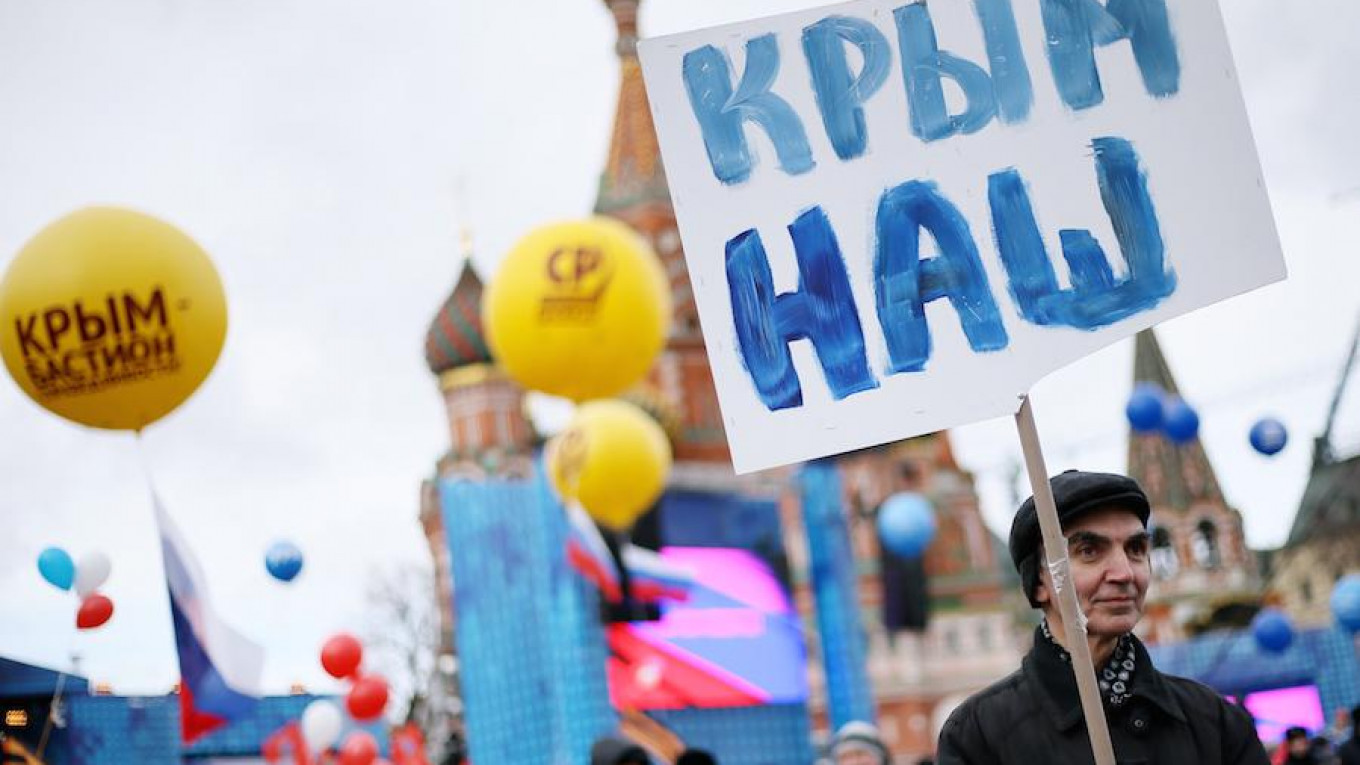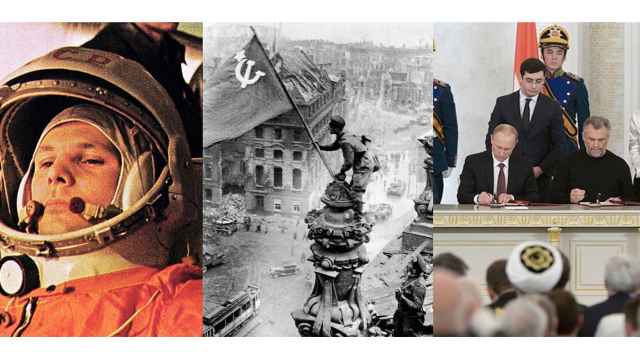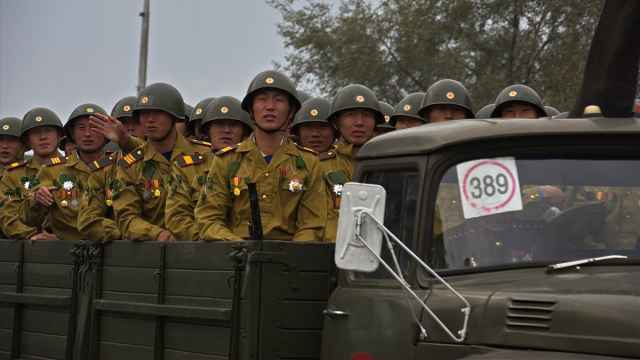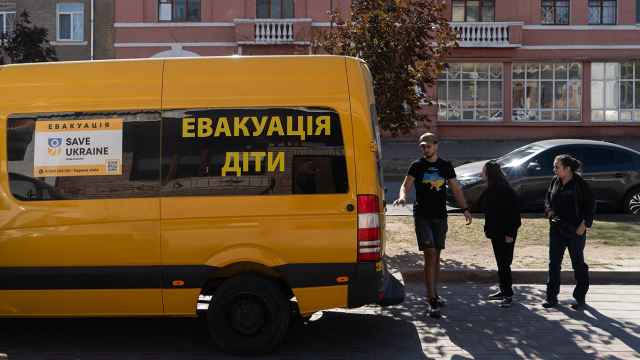Russia’s celebration of the three-year
anniversary of the Crimea’s annexation — and the festivities’
patriotic message — will be hard to miss.
Celebrations across Russia have been planned for
March 18. Some will have a local flavor — Yakutia, for example, is
organizing deer races. Others will be overtly nationalistic. Murmansk
is staging a flashmob titled “Crimea — Russia, forever!” with
free balloons in Russia’s tricolor.
Three years after Moscow formally annexed Crimea,
the consequences are still unfolding: Ukraine is still mired in
conflict, tensions between Kiev and Moscow are as high as ever, and
Western sanctions are still in place — despite expectations that a
Trump presidency would see them lifted.
Economically, the annexation has been a flop. In 2017, the republic will receive roughly 98 billion rubles from the federal budget. That puts it on par with some of Russia’s most costly regions like Chechnya and Ingushetia. Huge infrastructural investments such as an upgraded airport in Simferopol and the Kerch Bridge to the Russian mainland are still in progress. If Crimea has survived, it is only thanks to a heavy infusion of government money.
Residents of the peninsula say they are beginning
to realize that regime change will not cure rampant corruption.
“People believed in the fairytale that someone would come along and
life would be good,” says one 28-year-old resident of the coastal
town Yalta, who spoke on the condition of anonymity. “But those
running the place are still the same people as they were under
Ukraine. They are filling their pockets.”
Daily inconveniences caused by the annexation are still being felt. The peninula is still partly reliant on Ukraine. The power shortages that engulfed Crimea in the winter of 2015, sporadically return, locals say. MasterCard and Visa are still inoperative. Russia’s alternative is mostly symbolic — the national Mir payment system (which translates as “World” or “Peace”) can’t be used for international transactions.
Then there are continued reports of human rights violations. Crimean Tatars still complain of persecution by Russian authorities. A journalist for RFE/RL, Mykola Semena, is facing charges of separatism for an article he wrote in 2015. Since last year, the Federal Security Service (FSB) has been on the hunt for “Ukrainian saboteurs.” Several detainees say they were tortured.
Among ordinary residents, however, the divisions between those who supported Kiev and those who supported Moscow, which dominated Crimean society in the lead-up and aftermath of the annexation, has mostly faded. “My sister in Ukraine used to call me a separatist, but now she’s become less categorical,” says the Yalta resident, who herself opposed the annexation. “People understand that it’s just politics, and that actually we’re one people.”
The reality is that Crimeans have little choice but adapt. Alexei Levinson of the Levada Center pollster says there is no appetite for a policy reversal. “Most Russians feel that the annexation has cured the trauma of the fall of the Soviet Union and made Russia a superpower again,” he says.
With the annexation seen as a heroic feat — second only to the Soviet victory over Nazi Germany — Russians are willing to bear the economic and political cost, he says. “Crimea is in a league of its own. Putin would never be forgiven if he surrendered.”
Not that that is a likely scenario. Crimea catapulted Putin’s ratings to an all-time high and consolidated the political landscape around a national idea known as the “Crimean consensus” that remains firmly in place to this day. Presidential elections next year — predicted to be held on the fourth anniversary of the annexation, March 18 — will show whether that consensus can survive another year.
A Message from The Moscow Times:
Dear readers,
We are facing unprecedented challenges. Russia's Prosecutor General's Office has designated The Moscow Times as an "undesirable" organization, criminalizing our work and putting our staff at risk of prosecution. This follows our earlier unjust labeling as a "foreign agent."
These actions are direct attempts to silence independent journalism in Russia. The authorities claim our work "discredits the decisions of the Russian leadership." We see things differently: we strive to provide accurate, unbiased reporting on Russia.
We, the journalists of The Moscow Times, refuse to be silenced. But to continue our work, we need your help.
Your support, no matter how small, makes a world of difference. If you can, please support us monthly starting from just $2. It's quick to set up, and every contribution makes a significant impact.
By supporting The Moscow Times, you're defending open, independent journalism in the face of repression. Thank you for standing with us.
Remind me later.






